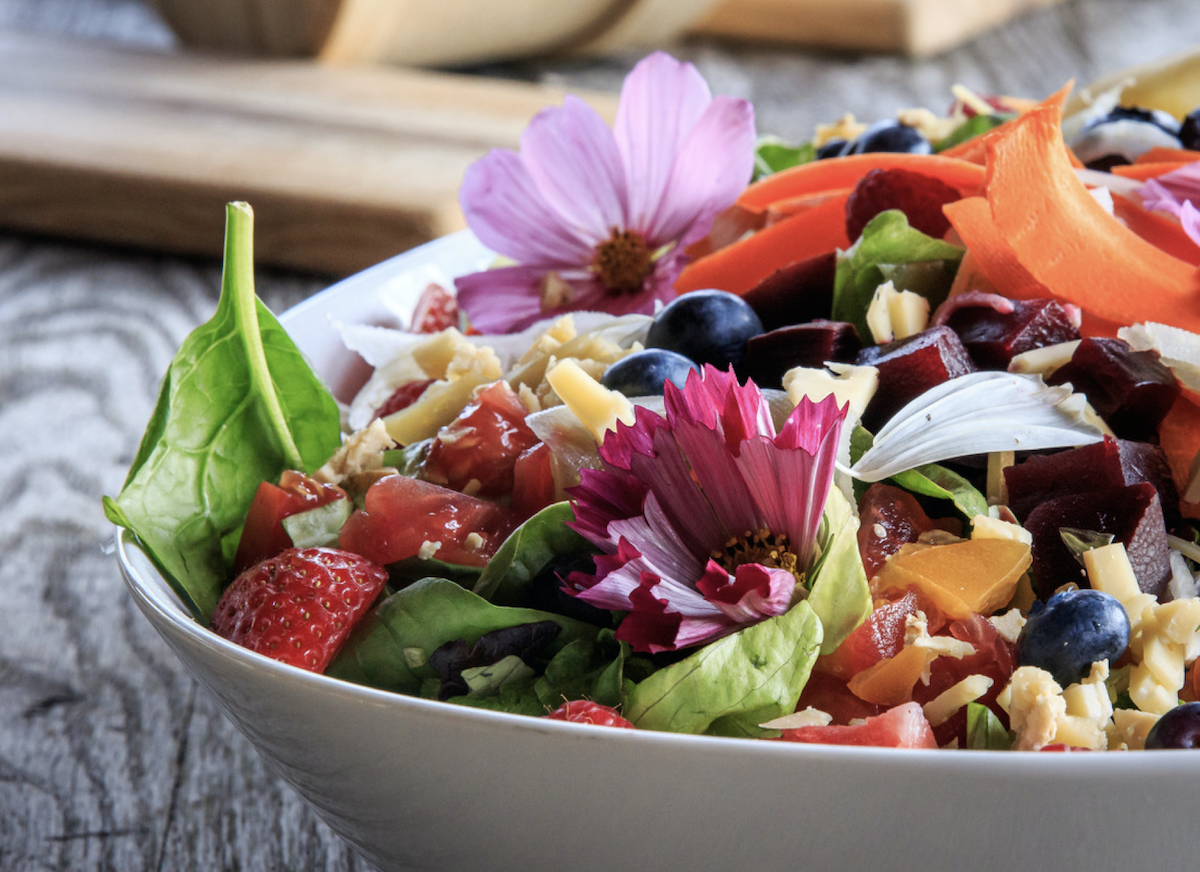8 Delicious Vegan Facts That Will Cleanse the Palate of Meat Lovers
Veganism is not just another food trend, let alone a fad. It is the best way forward if we want to sustainably feed billions of people.
The vegan movement could be one of the answers to food security, with 45% of the world’s total surface used for livestock, which also requires food and water. Plus, according to our friends at HealthCareers, the 13.7 billion metric tons of carbon dioxide emissions from food could be reduced by 70% if the world consumes nothing but vegan ingredients.
If only meat lovers knew how tasty and healthy vegan alternatives really are, more of them would have jumped on the bandwagon much sooner. Below are some of the delicious facts about vegan foods that will make you want to fill your fridge and pantry with plant-based products.
1. There Could Be Fewer Cases of Eating-Related Cancer If More People Went Vegan
If more people went vegan, the cases of eating-related cancer could go down. Studies reveal that legume consumption is linked to an 18% reduced risk of colorectal cancer while vegan diets are found to decrease the chances of getting prostate cancer by 35%.
2. Vegan Diets Could Reduce the Risk of Type 2 Diabetes
Vegan meals could help keep you from developing type 2 diabetes by 23%. For best results, the healthiest plant-based diets consisting of legumes, nuts, whole grains, vegetables, and fruits must be followed.
3. Half of All Meat Eaters Are Trying Vegan Foods for Better Weight Management
Everyone has their own motivation for consuming vegan ingredients. But nearly 50% of non-vegans are lowering their meat consumption to manage their weight better. Practically the same percentage of meat eaters are slowly going vegan to improve their overall health.
4. Almost All American Consumers of Vegan Burgers Are Non-Vegans
It’s not a coincidence that most vegans on the planet live in India since cows are considered sacred in this country. That is quite the opposite of the United States where burgers are the most popular beef dish. That said, it’s a pleasant surprise that meat-eaters account for 95% of the US vegan burger market. Getting the stamp of approval of American burger lovers is a testament to the scrumptious taste of plant-based beef alternatives available today.
5. Dairy Alternatives Are Perfect for the Lactose-Intolerant
Sixty-five percent of the global population suffers from lactose intolerance. Thanks to plant-based drinks, those who can’t process dairy can finally enjoy milk.
In 2018, dairy alternatives were responsible for over 50% of the vegan food market’s revenue worldwide at $16.3 billion.
6. Italy Accounts for a Sizable Portion of the World’s Vegan Population
Italian gastronomy is celebrated throughout the world. Italians consume very little red meat, but their diet includes fish and poultry. Considering how much Italians respect their local cuisine, the fact that 10% of their over 60 million population is now vegan speaks volumes about the appetizing flavor of meat alternatives on the market.
7. More and More Brits Are Going Vegan
Since 2014, the number of the British population that has forgone animal-based food items has increased by 300%. Forty-two percent of UK vegans made the transition just last year. While the vegan movement across the pond has just been gaining momentum, the Brits have been losing their appetite for animal products for decades. The average household in the UK consumed merely 102 grams of meat and veal per week in 2015, down from 215 grams per week in 1975.
8. Europeans Are Loving Vegan Cheese
Cheese is a strong component of many national identities in Europe. But Europeans themselves are some of the biggest fans of vegan cheese. By 2023, the continent’s vegan cheese market is projected to reach $1.58 billion.
The Bottom Line
The world is slowly debunking the myth about vegan foods not being tasty. As consumers get used to seeing them on store shelves regularly and trying them out, it is only a matter of time before plant-based food recipes become the standard instead of the alternative.









